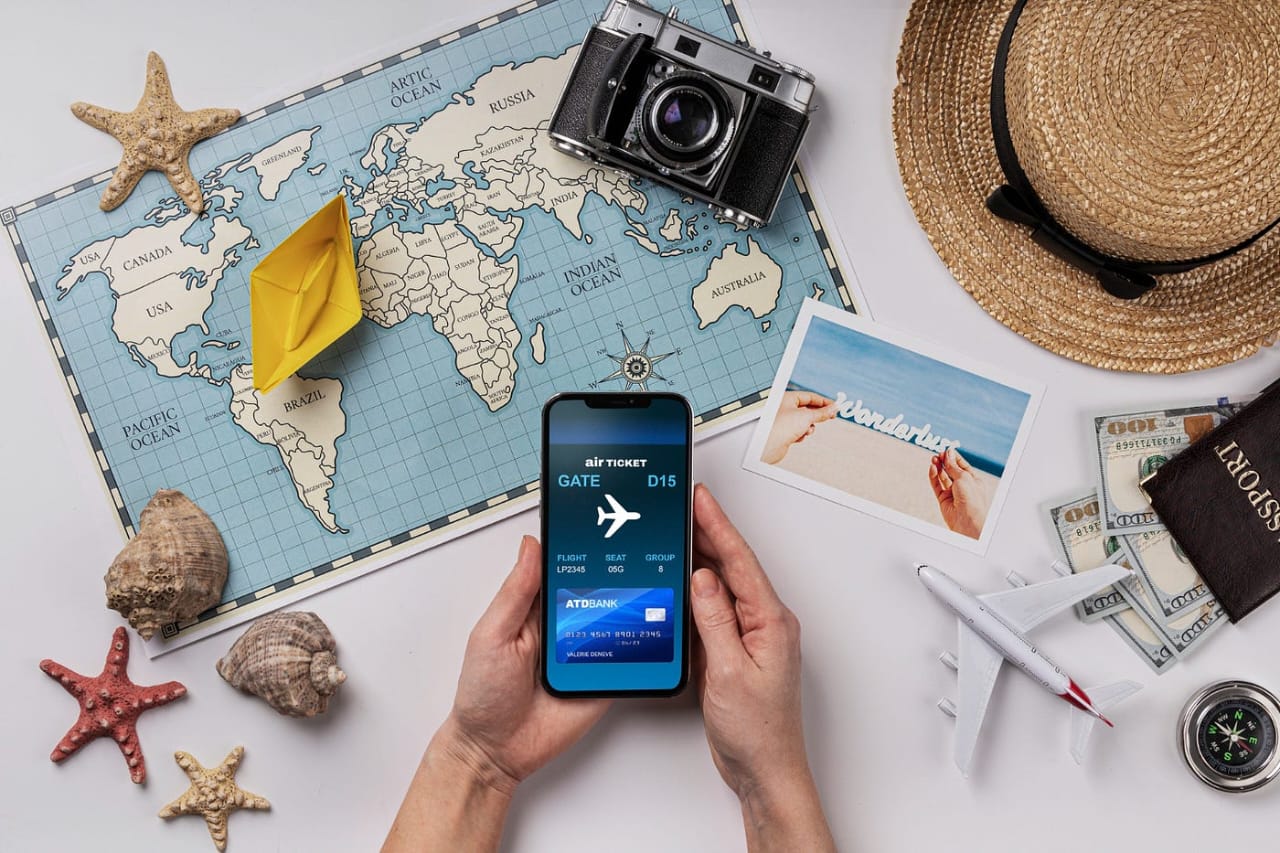
- Travel Tips
Safety, Tech & Travel: How To Travel Smart In 2025
Remember when traveling meant printing out confirmation emails, carrying journals, and hoping you'd find an internet cafe to check your email? Those days are long gone. The rules for traveling smart remain rooted in preparation, awareness, and flexibility. What does change is the toolbox.
Today, your smartphone is your translator, your tour guide, your safety net, and your connection to home all rolled into one sleek device. Technology gives us advantages earlier generations of travelers only dreamed about. But like any tool, tech can be misused to be your greatest travel ally or your biggest distraction.
Let's explore how to leverage technology without letting it take over your travel experience.
ESSENTIAL APPS FOR ALL YOUR TRAVELS
In 2025, the app stores are flooded with travel tools, but most of them solve problems you don't have or duplicate what other apps already do better. These are the apps that are worth having today:
Google Maps
Everyone uses Google Maps, but the offline feature remains criminally underused. Download entire cities before you travel, and you have full navigation capability without burning through data or scrambling for WiFi. The offline map, transit info, walking navigation, traffic updates, and “things nearby” features make it indispensable
Sitata: Safety Intelligence
Think of Sitata as your personal travel intelligence officer. The app monitors your location and sends real-time alerts about disease outbreaks, natural disasters, political unrest, and security threats in the areas you're visiting. It is quite specific as you get neighborhood-level alerts that let you make informed decisions.
bSafe: Personal Security
For solo travelers, especially, bSafe isn't paranoia, it is preparation. The app lets you set up a network of trusted people who can track your location in real-time. The voice-activated SOS works even when you can't physically access your phone. The fake call feature is useful for gracefully exiting uncomfortable situations while the alarm feature can deter potential threats just by being loud and obvious.
Google Translate Camera Feature
Point your phone at a menu, street sign, medicine label, or document for instant translation. Although still imperfect, it's good enough to help you order food, read warnings, understand directions, and navigate situations where language would otherwise be a complete barrier. Download the language packs for offline use.
TripIt
This organizes everything automatically. Forward any booking confirmation to your TripIt email and let it build your itinerary. Get your flights, hotels, restaurants, tours all in one place. The pro version even alerts you to delays before you realize there's a problem.
Booking.com/ Airbnb
Great for quick city stays, when you want more space or a local feel. Both have improved their cancellation policies significantly.
Expense tracker apps (or use your banking app notifications)
Travelers almost always overspend just because they lose track of costs while switching currencies or paying for last-minute changes. Expense trackers are great for keeping you grounded and within budget.
HEALTH AND WELLNESS
Travel health management has evolved significantly, and being prepared means more than just packing a first aid kit.
Digital Health Documentation
Keep encrypted digital copies of all your important health documents. Store them in a secure cloud service. This includes vaccination records, prescriptions with both brand and generic drug names, insurance cards, blood type, allergies, and emergency contacts.
Travel Insurance That Actually Works
The real difference between good and bad travel insurance is simple: direct payment vs. reimbursement. In an emergency abroad, you don’t want to pay thousands first and fight for reimbursement later. Choose a plan with 24/7 support, evacuation coverage, and protection for your activities. And always check the exclusions.
Wearable devices/smartwatches & Basic medical kit
Use to monitor heart rate, sleep, or detect anomalies. These can warn you if you’re overdoing it or expose early signs of illness. These are nonnegotiable as changes in weather or pre-existing health conditions can pose a threat anytime. Know where the nearest hospital or clinic is before you arrive.
TECH HACKS THAT WORK
The goal is to use technology to eliminate friction and stress, not to add complexity or create new dependencies. Further things to take note of include:
Security on Public Networks
Use a VPN on public WiFi. Airport, hotel, café connections are vulnerable to encrypt your connection, especially if you're accessing sensitive information like bank accounts or passwords.
Screenshots and Offline Access
Screenshot everything important: booking confirmations, hotel addresses, flight details, reservation codes, emergency numbers, and maps to key locations. Save on a dedicated folder on your phone. Pulling up a screenshot is infinitely faster than searching through emails.
Real-Time Updates and Local Knowledge Through Social Media
Instagram, Facebook and Twitter (X) can provide real-time updates about attractions, restaurants, and local situations. The collective knowledge of people actually living in or frequently visiting your destination is incredibly valuable
The Bottom Line
Travel in 2025 offers unprecedented tools to make your journeys safer, smoother, and less stressful. However, technology is a tool, not a replacement for awareness and common sense. Apps can't tell you that a situation feels wrong or that you should trust your instincts. They can't replace looking up from your screen and observing your surroundings.
The best travel happens when technology fades into the background, quietly handling the practical details while freeing you to be fully present and creating the kind of memories that no app can capture or replace.

